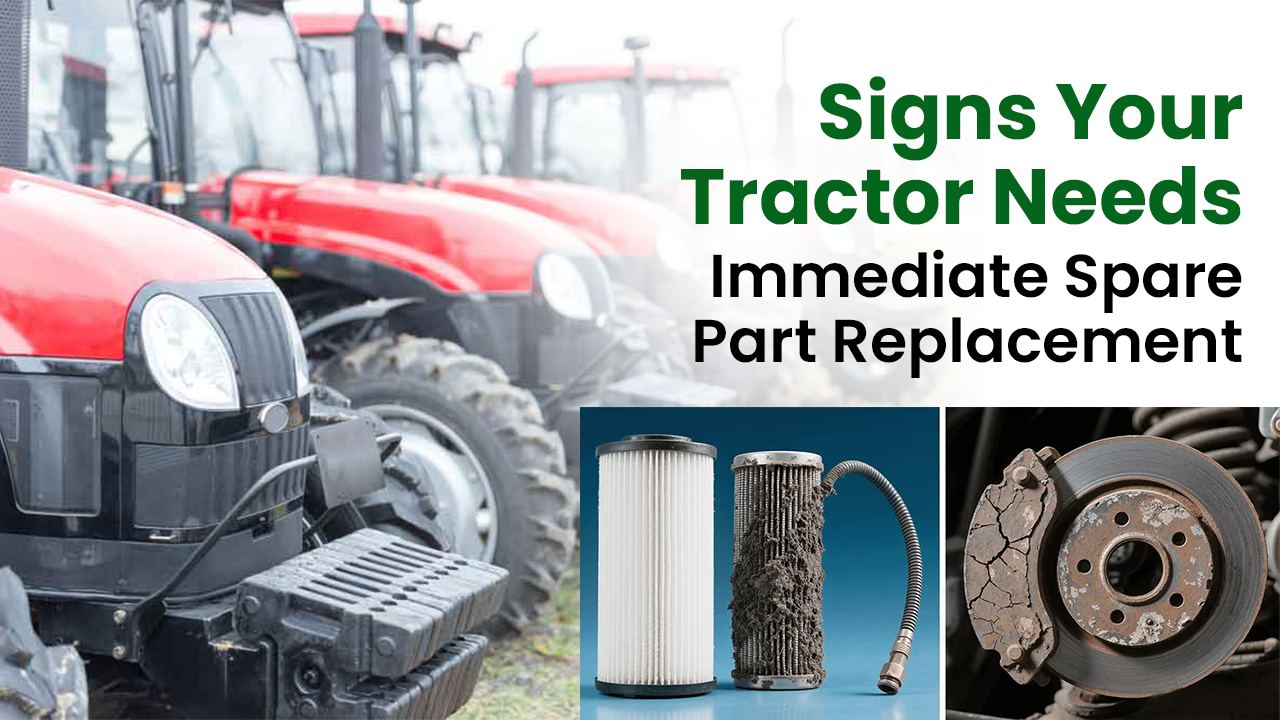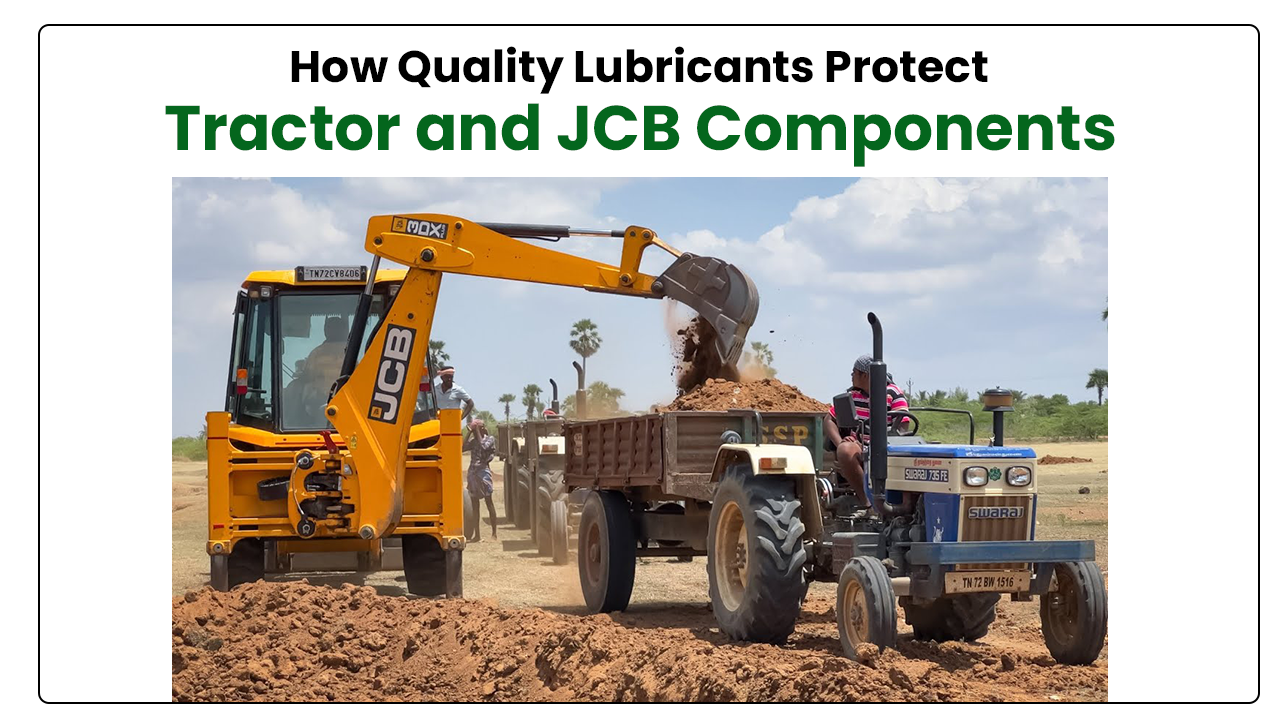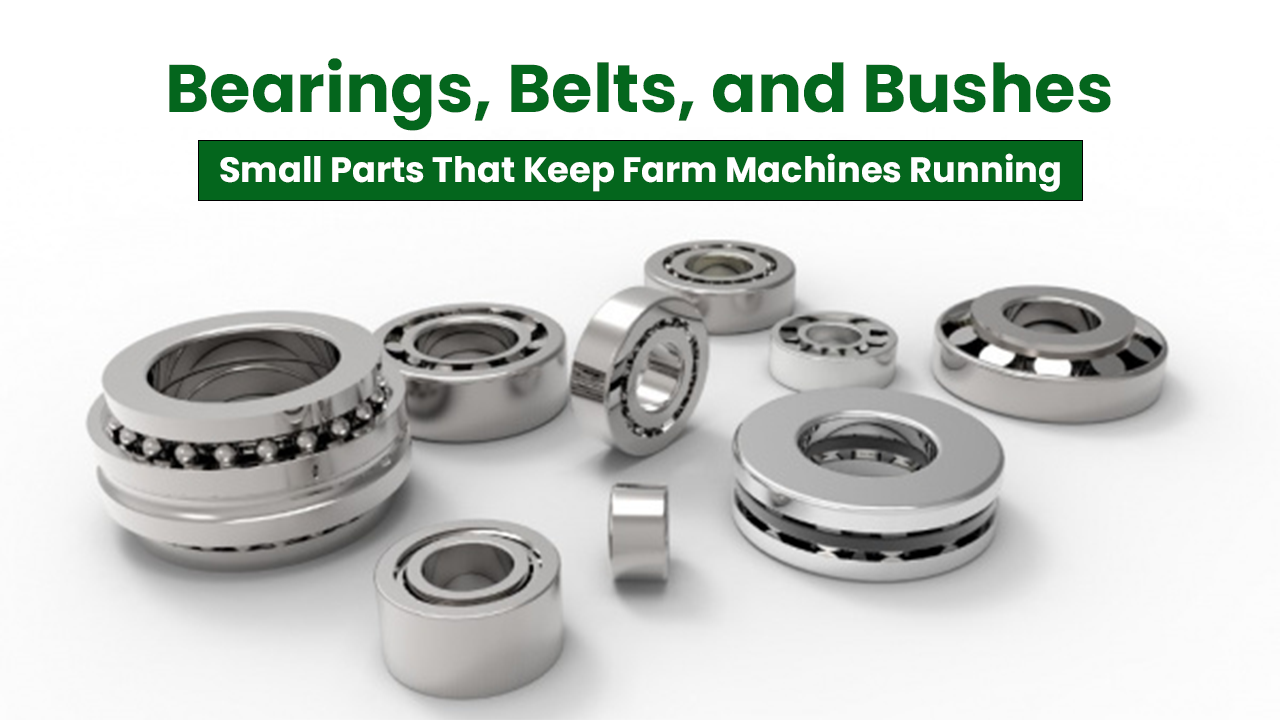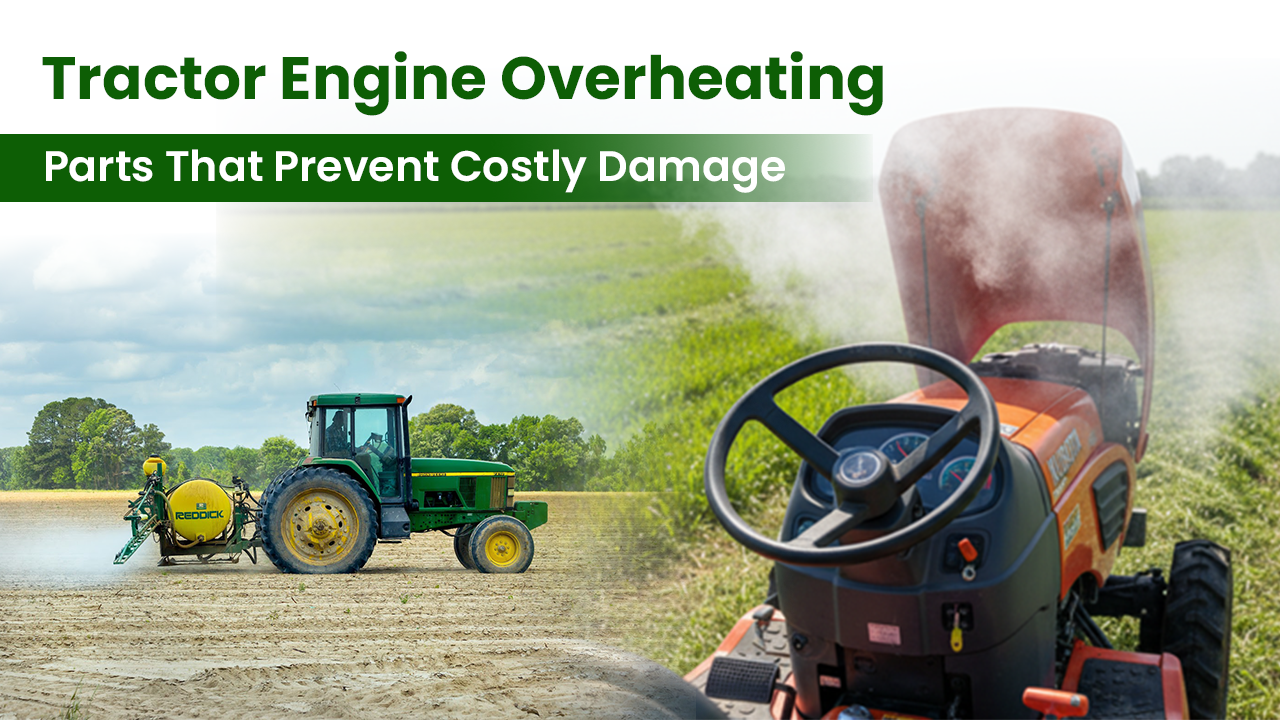Learn the key warning signs that your tractor needs immediate spare part replacement. Avoid costly breakdowns and downtime with timely maintenance using quality parts from Gropart.
A Farmer’s Guide to Choosing the Right Power Tools for Agricultural Needs
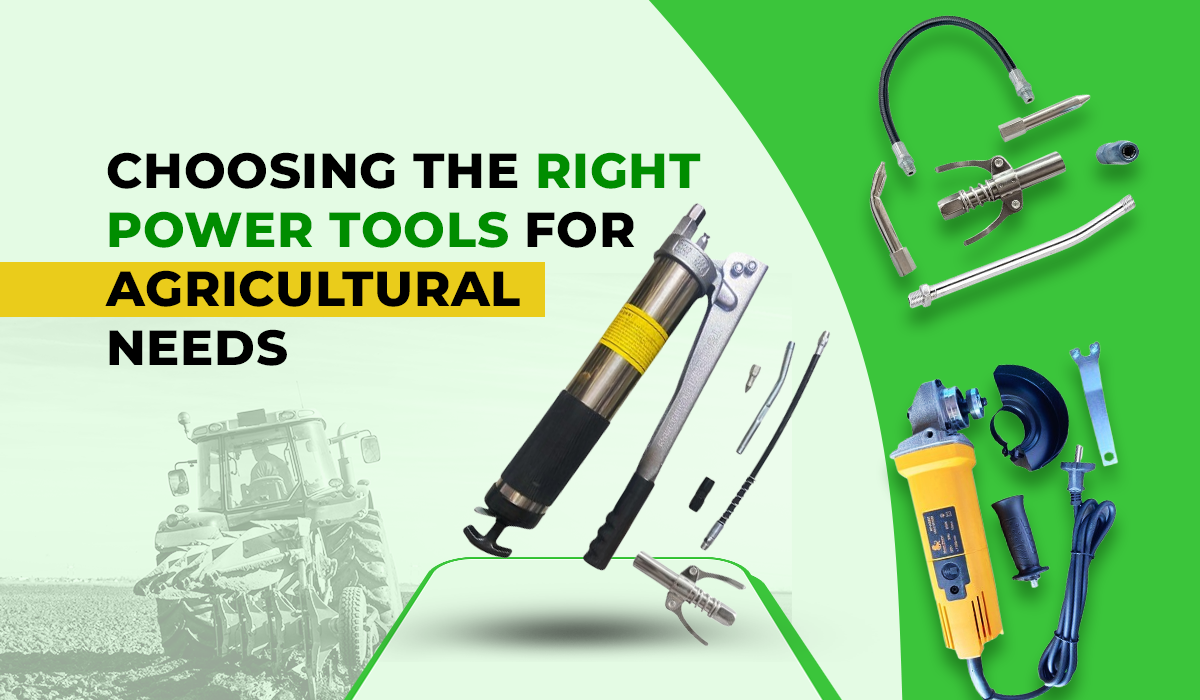
Agriculture has come a long way from manual labor and traditional tools. Today, farmers rely heavily on power tools for agricultural needs to enhance efficiency, reduce physical strain, and improve productivity. Whether you are cultivating a small farm or managing large-scale agricultural operations, choosing the right power tools can make a world of difference. This guide will walk you through selecting the best tools based on your farming requirements.
Why Farmers Need Power Tools
Modern farming demands precision, speed, and versatility. Traditional tools may work for some tasks, but for repetitive and large-scale operations, power tools for agricultural needs are indispensable. They help in:
- Saving time on labor-intensive tasks
- Reducing physical strain on workers
- Increasing yield through precision work
- Supporting sustainable farming practices
Investing in the right tools not only boosts efficiency but also ensures long-term durability and cost-effectiveness.
Key Considerations Before Choosing Power Tools
Before purchasing any equipment, farmers must evaluate their specific requirements. Consider the following:
1. Type of Farming
The type of crop or livestock determines the kind of tools you need. For example:
- Crop farming: Tractors, tillers, sprayers, and seeders are essential.
- Horticulture: Pruning tools, hedge trimmers, and soil cultivators may be more relevant.
- Animal husbandry: Feeders, water pumps, and milking machines might be needed.
2. Farm Size
The scale of operations affects tool selection. Small farms may benefit more from portable, handheld equipment, while large farms require heavy-duty machinery capable of handling large volumes efficiently.
3. Power Source
Most power tools for agricultural needs come in electric, battery-powered, or fuel-driven variants. Consider:
- Electric tools: Ideal for small farms with access to electricity.
- Battery-powered tools: Portable and eco-friendly, but limited by battery life.
- Fuel-powered tools: Suitable for large farms, but may require regular maintenance and fuel costs.
4. Durability and Build Quality
Agricultural work can be tough on equipment. Look for tools made with high-quality materials and robust construction to withstand harsh environments.
5. Maintenance and After-Sales Support
Power tools require regular maintenance to function efficiently. Check the availability of spare parts, warranty, and local service centers before making a purchase.
Essential Power Tools for Agricultural Needs
Here’s a detailed list of essential power tools for farmers and their applications:
1. Tractors
Tractors are the backbone of modern farming. They are versatile and can handle plowing, planting, and hauling heavy loads. Ensure you select a tractor with sufficient horsepower for your farm size and terrain.
2. Cultivators and Tillers
These tools prepare the soil for planting by breaking it into finer particles. Powered cultivators save time compared to manual plowing and ensure better soil aeration, which improves crop growth.
3. Seeders and Planters
Seeders and planters help in accurate seed placement, uniform spacing, and proper soil coverage. This precision reduces wastage and increases germination rates.
4. Sprayers
Sprayers are essential for applying fertilizers, pesticides, and herbicides. Modern power sprayers reduce labor and provide uniform application, enhancing crop health.
5. Harvesting Tools
Electric or fuel-powered harvesters reduce the time and effort required for harvesting crops like wheat, maize, and rice. Handheld harvesters are suitable for small-scale farms, while larger machines are ideal for expansive fields.
6. Pruning and Trimming Tools
For orchards and horticulture, power pruners and hedge trimmers are invaluable. They help maintain tree health, improve sunlight penetration, and ensure better fruit yield.
7. Water Pumps
Efficient irrigation is crucial for farming success. Power-driven water pumps help in timely and consistent watering of crops, especially during dry seasons.
Safety Tips While Using Power Tools
Using power tools for agricultural needs can be hazardous if proper precautions are not taken. Always:
- Wear appropriate protective gear (gloves, helmets, goggles)
- Follow the manufacturer’s instructions carefully
- Keep children and pets away from operational areas
- Perform regular maintenance checks to avoid accidents
- Ensure proper storage after use
Cost vs. Benefit Analysis
While power tools may require a significant initial investment, their benefits outweigh the costs in the long run. They increase efficiency, reduce labor expenses, and improve crop yield. Farmers should calculate return on investment (ROI) before purchasing, considering the frequency of use and maintenance costs.
Tips for Extending the Life of Power Tools
- Regularly clean and lubricate moving parts
- Store tools in a dry, sheltered area
- Replace worn-out parts immediately
- Follow scheduled maintenance routines
- Invest in quality tools rather than cheap alternatives
Conclusion
Choosing the right power tools for agricultural needs is a strategic decision that affects productivity, efficiency, and profitability. By understanding your farm’s requirements, selecting durable and suitable equipment, and following proper maintenance and safety practices, you can ensure smooth and sustainable farming operations. Platforms like Gropart offer a wide range of high-quality agricultural power tools, making it easier for farmers to find the right equipment for their specific needs. Investing in the right tools today can save time, reduce effort, and maximize your farm’s potential for years to come.
FAQs About Power Tools for Agricultural Needs
Q1: Are power tools necessary for small farms?
A: Yes, even small farms benefit from power tools, as they save time, reduce manual labor, and improve productivity.
Q2: How do I choose between electric, battery-powered, or fuel-driven tools?
A: Consider your farm size, availability of electricity, and mobility needs. Electric tools are ideal for small farms, battery-powered tools are portable, and fuel-driven tools are suitable for large-scale operations.
Q3: Can power tools increase crop yield?
A: Indirectly, yes. Tools like precision seeders, sprayers, and harvesters improve efficiency, soil health, and reduce crop losses, which contribute to better yield.
Q4: How often should I maintain power tools?
A: Regular maintenance depends on usage frequency. Generally, inspect tools before and after use, perform monthly servicing, and follow manufacturer guidelines.
Q5: Are there eco-friendly power tools available?
A: Yes, battery-powered and solar-assisted tools are increasingly available, which reduce emissions and support sustainable farming.
 English
English

